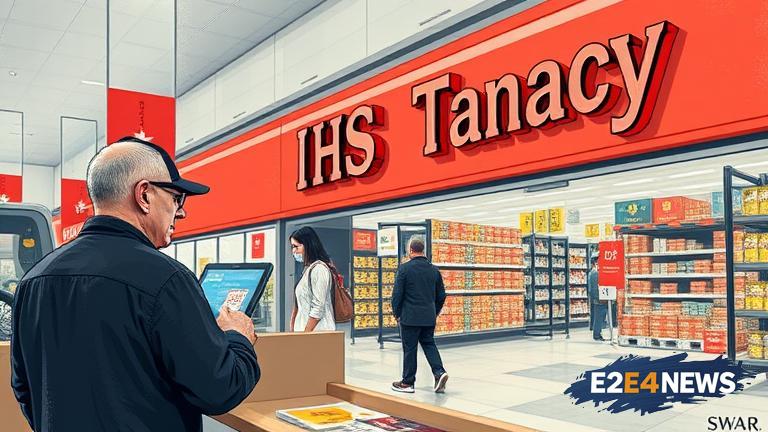The ongoing trade tensions between the United States and China have resulted in significant economic repercussions for US retailers with substantial exposure to the Chinese market. As the Trump administration’s tariffs continue to take effect, many American retailers are facing an increased risk of bankruptcy. The tariffs, which were imposed by the US government in an effort to protect domestic industries and pressure China into renegotiating trade agreements, have led to a surge in costs for retailers who rely heavily on Chinese imports. With the US-China trade war showing no signs of abating, retailers are being forced to absorb the increased costs or pass them on to consumers, which could lead to decreased sales and revenue. The report highlights the vulnerability of US retailers with significant China exposure, citing the example of several major retailers who have already filed for bankruptcy or announced significant store closures. The tariffs have also led to a decline in consumer confidence, as shoppers become increasingly wary of purchasing goods from retailers who may be struggling to stay afloat. Furthermore, the trade tensions have resulted in a decline in investor confidence, making it more challenging for retailers to secure funding and investment. The impact of the tariffs is being felt across various sectors, including apparel, electronics, and home goods. Retailers who have diversified their supply chains and invested in e-commerce platforms are better equipped to weather the storm, but those who have failed to adapt are facing significant challenges. The report also notes that the tariffs are having a disproportionate impact on small and medium-sized retailers, who often lack the resources and scale to navigate the complexities of international trade. As the trade war continues to escalate, it is likely that more US retailers will be forced to file for bankruptcy or significantly restructure their operations. The consequences of the tariffs will be far-reaching, with potential implications for employment, economic growth, and consumer spending. In addition, the trade tensions are also having a negative impact on the global economy, as other countries begin to feel the effects of the tariffs. The World Trade Organization has warned that the trade war could lead to a decline in global trade, which could have significant consequences for economic growth and stability. The US government has argued that the tariffs are necessary to protect domestic industries and address trade imbalances, but critics argue that the measures are misguided and will ultimately harm American consumers and businesses. As the situation continues to unfold, it is likely that the US retail sector will undergo significant changes, with some retailers emerging stronger and more resilient, while others are forced to adapt or face bankruptcy. The report concludes that the US retail sector is facing a period of unprecedented uncertainty and challenge, and that retailers will need to be agile and adaptable in order to survive. The tariffs are also having a negative impact on the US economy, with some estimates suggesting that the measures could lead to a decline in economic growth and an increase in unemployment. The trade war is also having a negative impact on the Chinese economy, with the country’s exports declining significantly in recent months. The Chinese government has responded to the tariffs by imposing its own measures on US goods, which has led to a decline in US exports to China. The trade tensions are also having a negative impact on other countries, including those in the European Union and Asia, who are caught in the middle of the trade war. The report notes that the trade war is a complex and multifaceted issue, with no easy solutions or quick fixes. However, it is clear that the tariffs are having a significant impact on the US retail sector, and that retailers will need to be proactive and adaptable in order to survive. The US government will need to carefully consider the implications of the tariffs and work to find a resolution to the trade war, in order to mitigate the negative impacts on the US economy and retail sector.
